UN Women and Stakeholders Lead Parallel Session on SDG 5 at ARFSD-11 to Advance Gender Equality through Systemic Transformation
Date:
In a powerful parallel session during the 11th Africa Regional Forum on Sustainable Development (ARFSD-11), UN Women, alongside key stakeholders from governments, civil society, the private sector, and youth organizations, convened to reaffirm and reimagine commitments to Sustainable Development Goal 5 (SDG 5): Achieve gender equality and empower all women and girls.The parallel session called for integrated, inclusive, and gender-responsive approaches to accelerate progress on Sustainable Development Goal 5 and Agenda 2063.
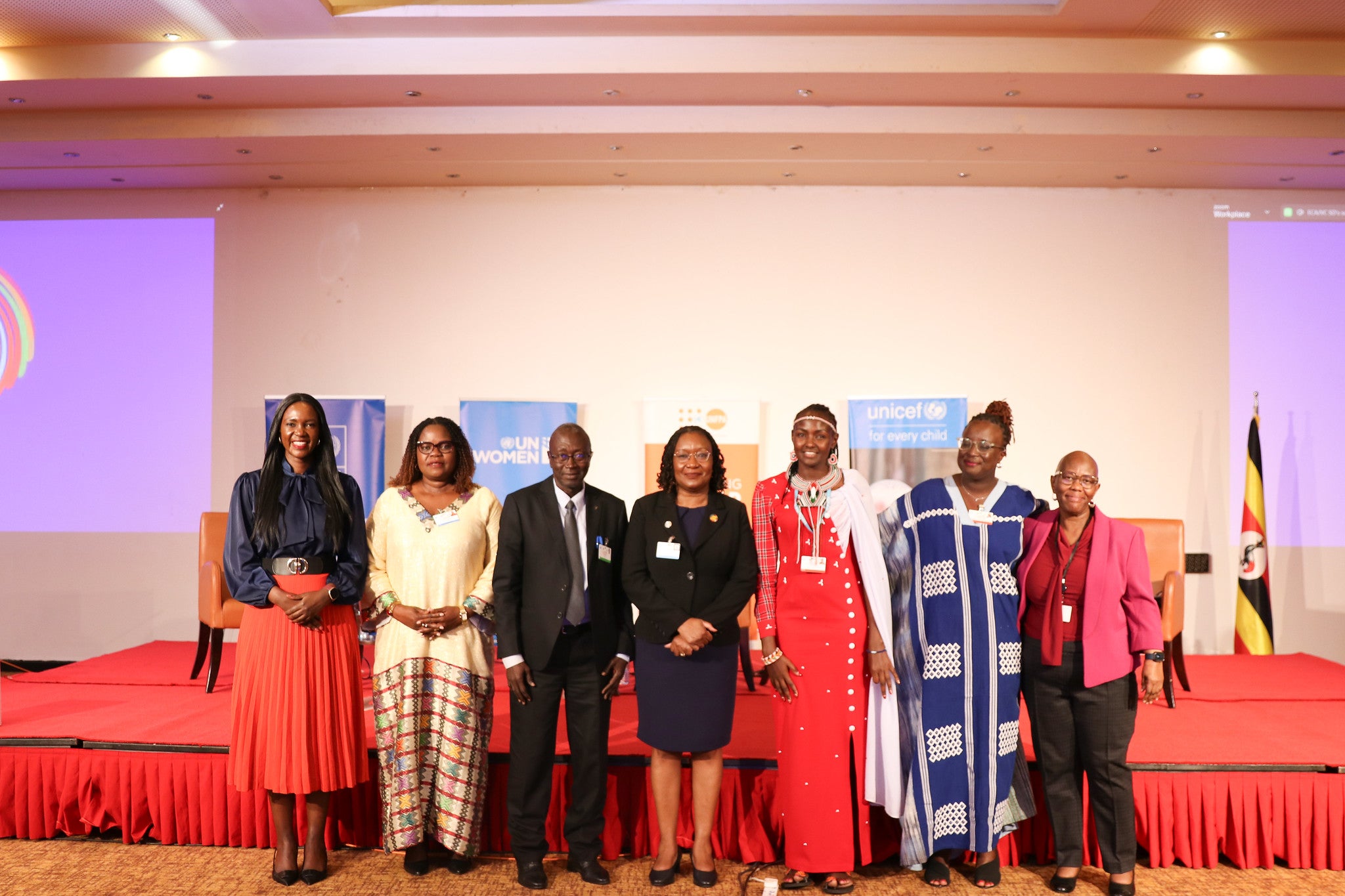
The session provided a critical space to take stock of progress, examine persistent barriers, and collaboratively chart a path toward transformative, gender-responsive development rooted in the aspirations of Agenda 2063.
Panelists, as well as participants, emphasized the urgent need to integrate gender perspectives into all areas of planning, budgeting, and resource allocation. They highlighted that embedding gender considerations into public systems and policies was essential to dismantling structural barriers and ensuring that women and girls are equitably included in Africa’s development journey. During the discussions, it was clear that expanding women’s access to financial resources, including credit, entrepreneurship opportunities, and financial literacy programs was important and must be prioritized if the continent was to accelerate efforts towards achieving gender equality. Innovative financial mechanisms developed in partnership with public and private stakeholders were highlighted as key tools to promote inclusion and economic independence.
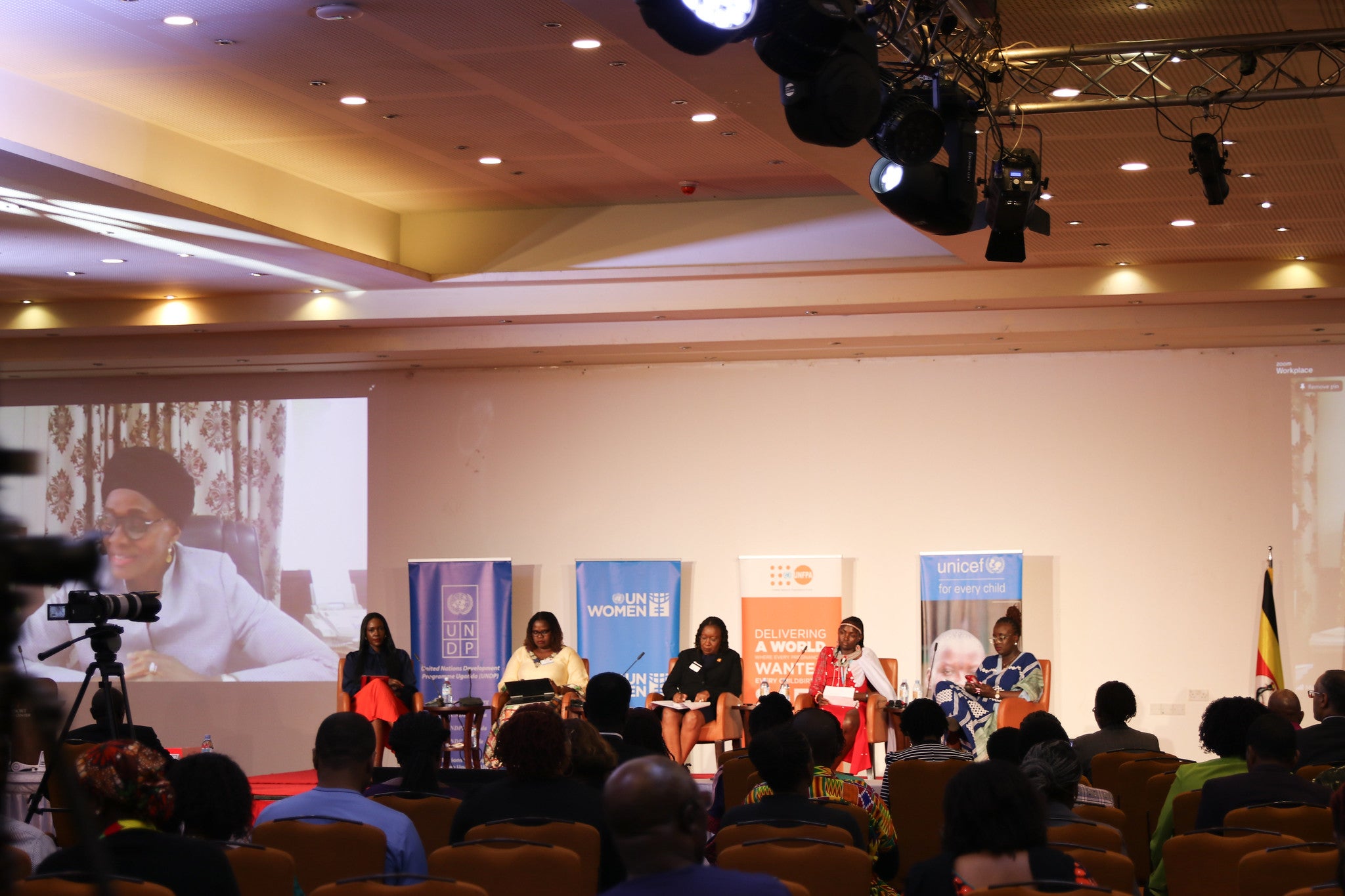
There was a unanimous call for a systemic redistribution of unpaid care and domestic work, recognizing its impact on women’s economic participation. Investment in care infrastructure, adoption of work-life balance policies, and the formal recognition of care workers are foundational to enabling women’s full engagement in the workforce. Digital inclusion emerged as a priority, with calls to expand affordable access to digital tools and scale digital literacy programs for women and girls. Stakeholders highlighted that digital empowerment not only bridges the gender divide but also unlocks new economic and leadership opportunities for women in the digital economy.
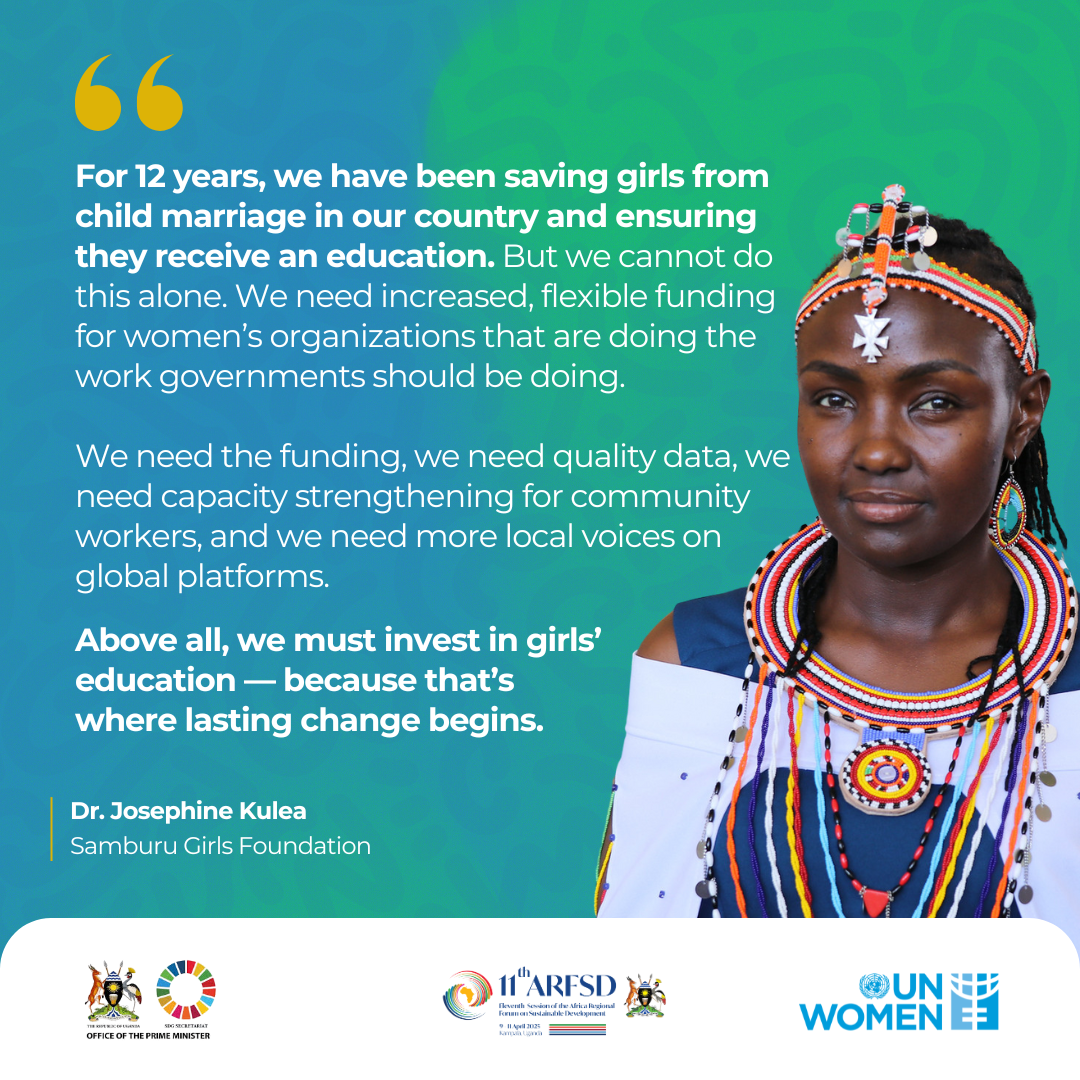
The session shed light on the importance of youth engagement, with participants advocating for the active involvement of young women in policymaking and leadership. This intergenerational lens was seen as vital for building resilient, equitable, and sustainable development outcomes. The reaffirmation of stakeholders’ commitment to tackling gender-based violence through comprehensive prevention, protection, and response mechanisms. The session called for integrated, cross-sectoral strategies to address violence as a major barrier to gender equality and sustainable development.
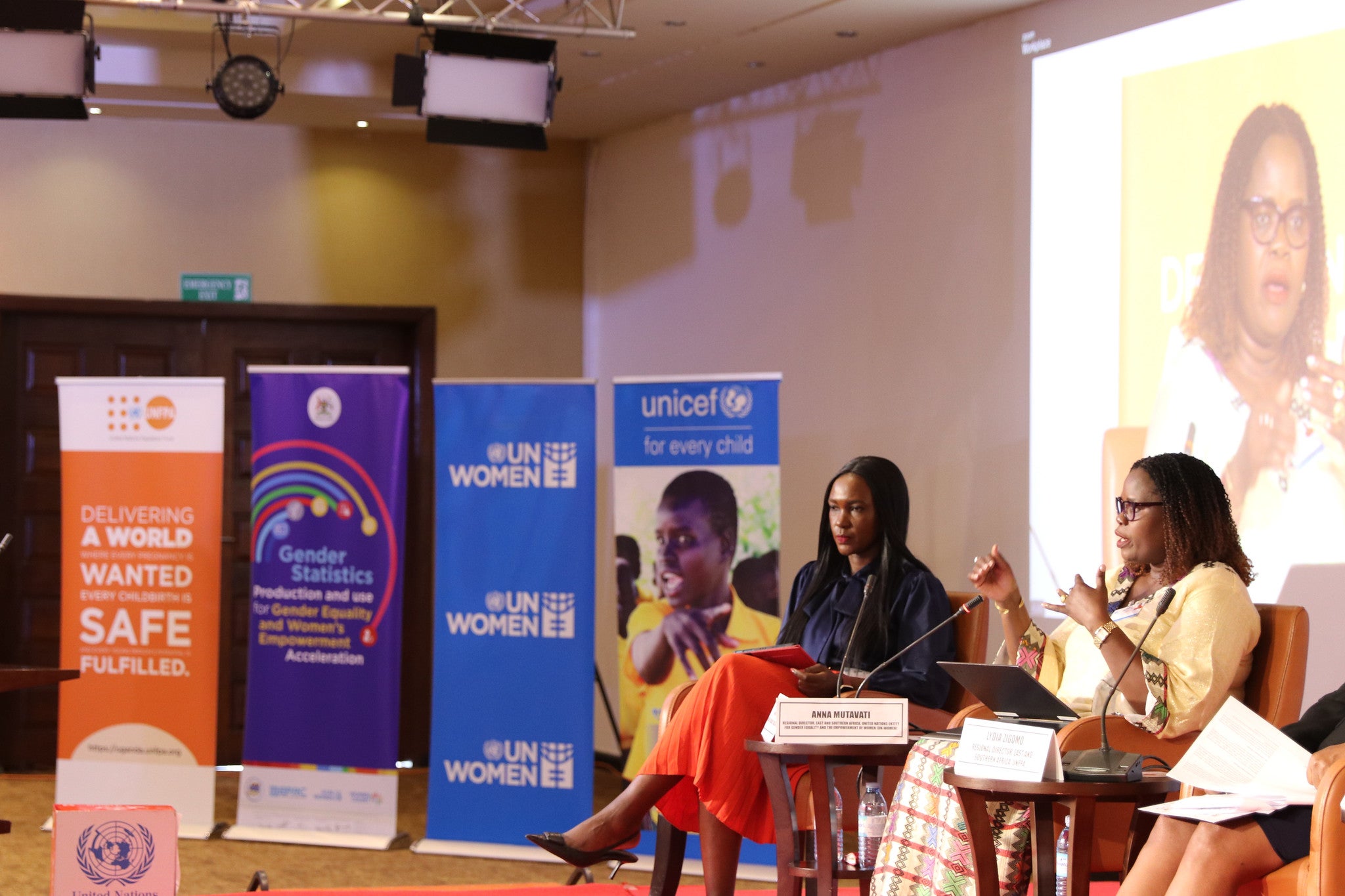
As the climate crisis continues to deepen existing inequalities, the vulnerability of women to climate-related risks continues to rise. Gender-sensitive climate action—including equitable access to land, technology, and green jobs—was positioned as critical to achieving resilient, inclusive economies. Collaboration was a strong theme throughout the session. There is need to strengthen multisectoral partnerships involving governments, civil society, the private sector, and international organizations. Such alliances are key to mobilizing resources and accelerating gender-responsive solutions across the continent.
The session identified persistent and emerging challenges undermining progress on gender equality, including:
- Economic inequality
- Underrepresentation of women in leadership roles
- Disproportionate unpaid care burdens
- Gender-based violence
- Digital exclusion
- Climate vulnerability
Stakeholders must consider coordinated action to dismantle these systemic hurdles by embeding gender considerations in traditionally neglected sectors, such as transportation, infrastructure, and urban planning. Gender-responsive approaches in these areas were seen as essential to creating safer, more accessible, and equitable environments for women and marginalized communities.
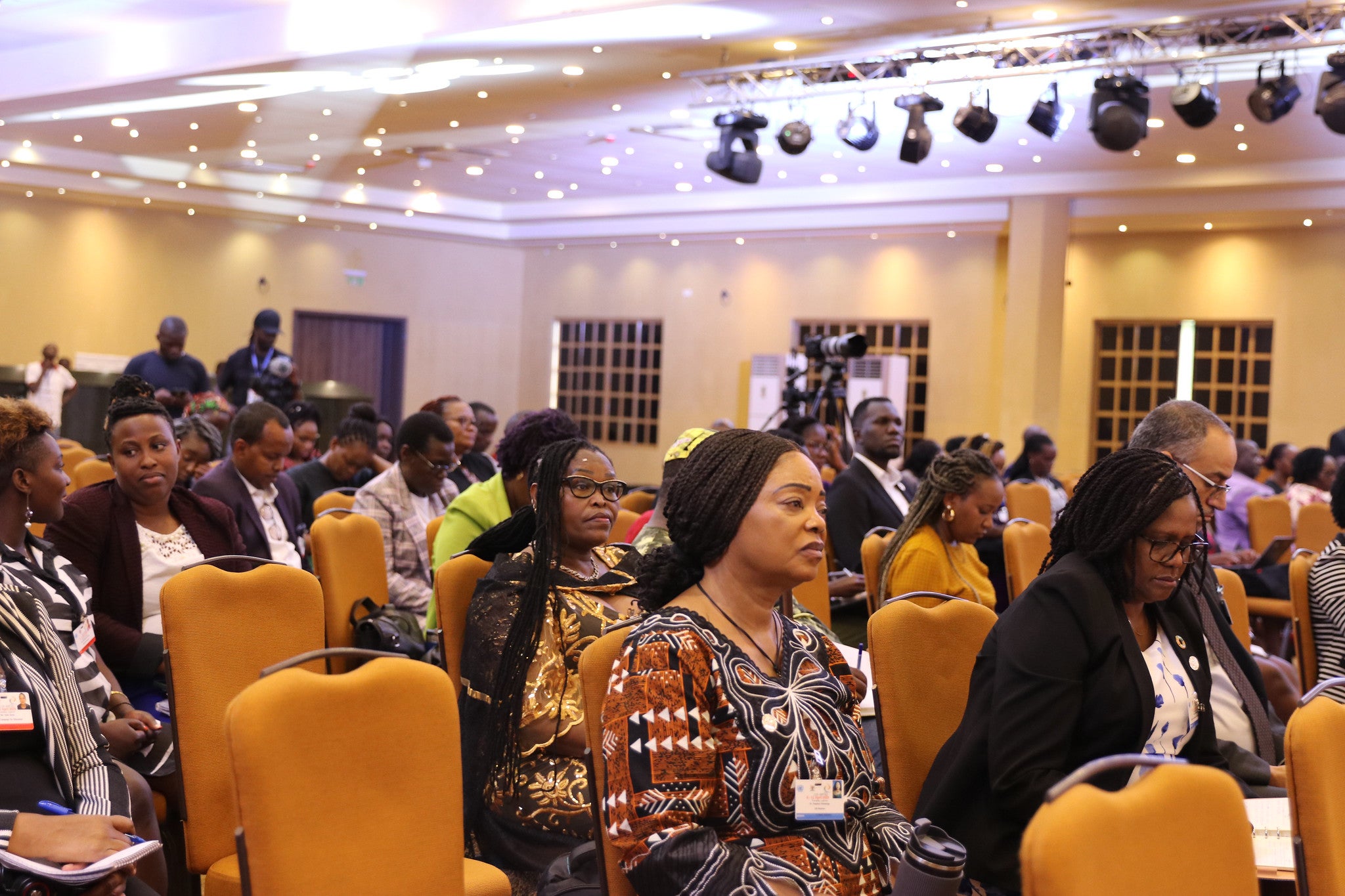
Stakeholders across the board should consider advocacy for decolonizing research practices and promoting community-driven, participatory knowledge production. Inclusion of indigenous knowledge systems and the empowerment of women and girls as both researchers and knowledge holders should be championed across the board. Additionally, a feminist research agenda was proposed—one that centers the lived experiences of women, focuses on transformative policy outcomes, and amplifies the voices of the most vulnerable.
Africa must speaking with one voice in global forums to ensure the continent’s gender equality priorities are clearly articulated and represented on the world stage. Part of this unanimous call involves strategic investments in public infrastructure, care systems, green economy pathways, and robust social protection. These interventions are critical to fostering inclusive development and ensuring gender equality is both a principle and a practice embedded in Africa’s development blueprint.
The parallel session served as a reaffirmation of Africa’s resolve to leave no woman or girl behind, offering a vision of inclusive transformation driven by collective will, shared accountability, and bold, gender-responsive leadership.